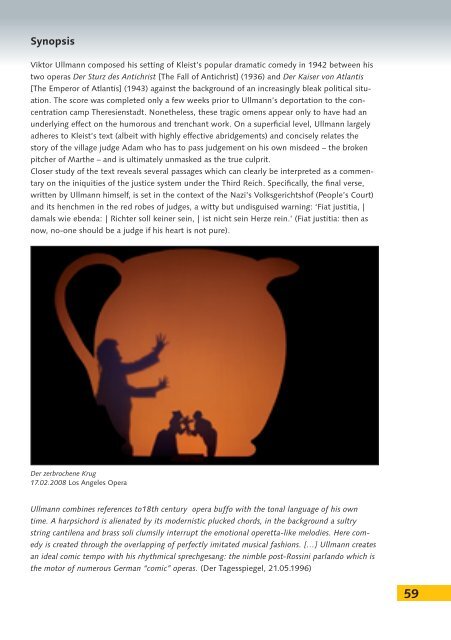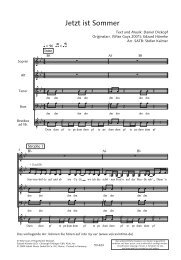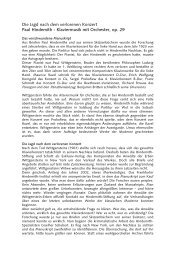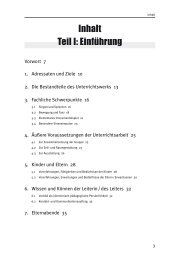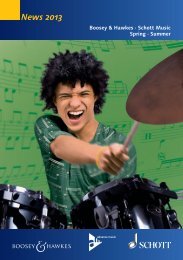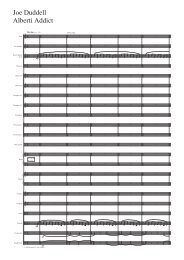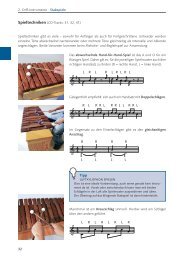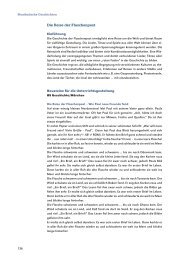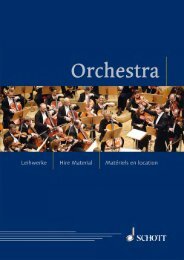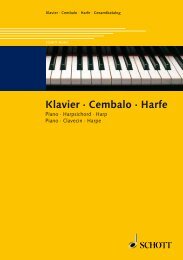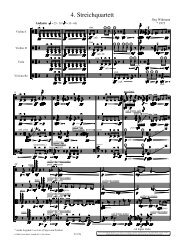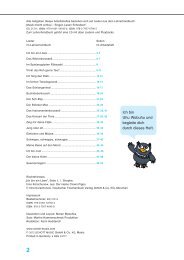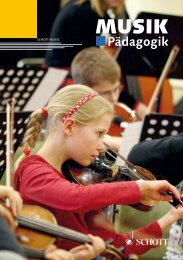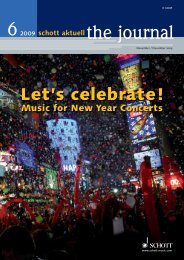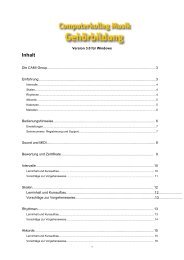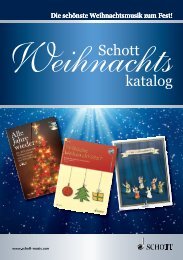Music Theatre since 1990 - Schott Music
Music Theatre since 1990 - Schott Music
Music Theatre since 1990 - Schott Music
Create successful ePaper yourself
Turn your PDF publications into a flip-book with our unique Google optimized e-Paper software.
Synopsis<br />
Viktor Ullmann composed his setting of Kleist’s popular dramatic comedy in 1942 between his<br />
two operas Der Sturz des Antichrist [The Fall of Antichrist] (1936) and Der Kaiser von Atlantis<br />
[The Emperor of Atlantis] (1943) against the background of an increasingly bleak political situation.<br />
The score was completed only a few weeks prior to Ullmann’s deportation to the concentration<br />
camp Theresienstadt. Nonetheless, these tragic omens appear only to have had an<br />
underlying effect on the humorous and trenchant work. On a superficial level, Ullmann largely<br />
adheres to Kleist’s text (albeit with highly effective abridgements) and concisely relates the<br />
story of the village judge Adam who has to pass judgement on his own misdeed – the broken<br />
pitcher of Marthe – and is ultimately unmasked as the true culprit.<br />
Closer study of the text reveals several passages which can clearly be interpreted as a commentary<br />
on the iniquities of the justice system under the Third Reich. Specifically, the final verse,<br />
written by Ullmann himself, is set in the context of the Nazi’s Volksgerichtshof (People’s Court)<br />
and its henchmen in the red robes of judges, a witty but undisguised warning: ‘Fiat justitia, |<br />
damals wie ebenda: | Richter soll keiner sein, | ist nicht sein Herze rein.’ (Fiat justitia: then as<br />
now, no-one should be a judge if his heart is not pure).<br />
Der zerbrochene Krug<br />
17.02.2008 Los Angeles Opera<br />
Ullmann combines references to18th century opera buffo with the tonal language of his own<br />
time. A harpsichord is alienated by its modernistic plucked chords, in the background a sultry<br />
string cantilena and brass soli clumsily interrupt the emotional operetta-like melodies. Here comedy<br />
is created through the overlapping of perfectly imitated musical fashions. […] Ullmann creates<br />
an ideal comic tempo with his rhythmical sprechgesang: the nimble post-Rossini parlando which is<br />
the motor of numerous German “comic” operas. (Der Tagesspiegel, 21.05.1996)<br />
59


